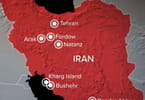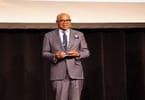“What drives tourism is the perception the traveler has of a destination. Fair reporting of both the negative and the positive will play a vital role in the recovery of Egyptian tourism,” said Egypt’s Tourism Minister, Mounir Fakhry Abdel-Nour, as he opened the conference.
The two-day meeting, Partnering with the Media in Challenging Times, is the second in UNWTO’s series of conferences on the relationship between tourism and the media. Organized in collaboration with the Egyptian Tourism Authority (ETA), and with CNN as media partner, the conferences aim to increase awareness of tourism among the mainstream media and forge closer relations between the two.
Stressing the potential role of the media in communicating tourism’s contribution to development, UNWTO Secretary-General, Taleb Rifai, said he was greatly encouraged that participants had come together to explore opportunities for strengthened outreach.
“A staggering one billion tourists will travel abroad in 2012. Tourism has become a truly global socio-economic phenomenon, which is not yet fully reflected in the media,” said Mr. Rifai, “We believe that to maximize the potential of tourism as a true driver of development and wellbeing for all, we need to bring tourism administrations, the private sector, and the media closer together.”
Tony Blair, Quartet Representative to the Middle East, highlighted the role of the media in addressing misperceptions in a special message to the conference. “Tourism is undoubtedly a bright spot and a vital contributor to the process of economic development,” he said, “But one of the misperceptions we have to deal with is that places, such as Palestine, are dangerous, when in fact the numbers simply do not bear this out.”
Sessions at the conference provided participants with practical tools for more efficient media relations, ranging from how to plan the appropriate social media strategy to response protocol in times of crises.
Tourism is a mainstay of the Egyptian economy, representing 30 percent of the country’s exports and employing 16 million people. While international tourist arrivals were down in 2011, at 9.5 million compared to 14 million in 2010, Egypt remained the second most visited country in the Middle East. Results for the first few months of 2012 show encouraging results, “excellent news for both the economy and the strengthening of the political processes underway,” said Mr. Rifai.
USEFUL LINKS:
Video message of Quarter Representative to the Middle East, Tony Blair
WHAT TO TAKE AWAY FROM THIS ARTICLE:
- “Tourism is undoubtedly a bright spot and a vital contributor to the process of economic development,” he said, “But one of the misperceptions we have to deal with is that places, such as Palestine, are dangerous, when in fact the numbers simply do not bear this out.
- The two-day meeting, Partnering with the Media in Challenging Times, is the second in UNWTO's series of conferences on the relationship between tourism and the media.
- Rifai, “We believe that to maximize the potential of tourism as a true driver of development and wellbeing for all, we need to bring tourism administrations, the private sector, and the media closer together.






















